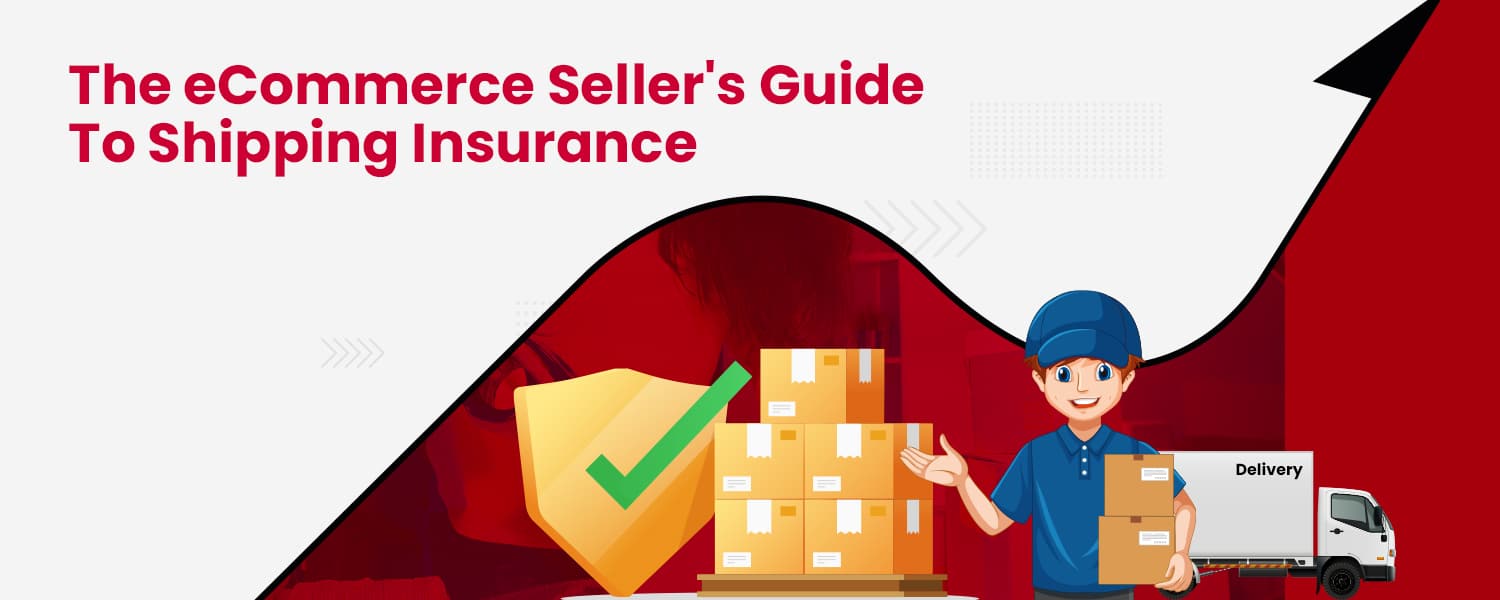A lot can happen to a product while shipping it from one place to another. For example, when a customer orders a product, it needs to be delivered to his doorstep; that is what eCommerce is about. But many customers face parcel delivery issues. According to Citizens Advice, 47% of British adults had delivery issues in march 2020 during the first lockdown. In addition, there are always some unplanned situations waiting for you; shipping insurance is needed to safeguard your product transit.
Even if you have an efficient logistic system and you are shipping products with the best carrier, there is a good chance you can face last-mile shipping issues. But, again, shipping insurance can cut losses from these issues.
Although shipping insurance may sound like an expense, it is worth the money. It will manifest in your goodwill and reputation.
Why is Shipping Insurance Important?
Shipping Insurance protects businesses from the cost of damage, lost or stolen, and misplaced packages shipped by carriers.
Companies should not mince their decision regarding logistics insurance. Many eCommerce sellers see damaged packages in more than 5% of the order they ship. That’s why eCommerce shipping insurance is essential, affecting customer loyalty and trust in your brand.
For the overall safety of your coverage, shipping insurance should not be the only option. It would help if you also made your packaging safe by bubble wrapping your product; it might give extra cushion to your items.
Types of Shipping Insurance
1. Carrier Insurance
Carrier insurance is offered by companies like NimbusPost. It is provided by almost all the carriers as additional insurance at the time of shipment. It may include in delivery quotes or as an extra paid service.
This insurance is a better option compared to declared value carriage. However, buying shipping insurance from your carrier will be more expensive than buying from a third-party insurance company.
2. Self-insurance
It offers extensive protection for the parcel shipped by carriers. Self-insurance means when an individual or a company decides to take risks and does not rely on carrier insurance and third-party shipping insurance companies. Although it will work at lower rates than other options, sellers often spend more money covering losses than they would under the other two options
3. Third-party Insurance
Third-party insurance is the most adopted insurance option among the three because it significantly reduces the processing time and efforts of the buyer. In this type of shipping insurance, sellers go to third-party companies specializing in eCommerce shipping insurance. These companies offer insurance on shipment to shipment bases to sellers.
This is the efficient option to buy shipping insurance but always look for out-of-the-pocket expenses as they add up quickly.
4. Declared Value Carriage
This is not shipping insurance, but most sellers choose Declared value carriage because sellers declare the maximum value they can recover in case of loss. You need to provide proof of the lost or damaged item’s value, and the insurer will pay less than the customs value declared.
Things To Consider While Buying Shipping Insurance
1. Terms and Conditions
It is very important to be clear about the terms and conditions of the shipment procedure. Here are some aspects you should know:
- Covered and uncovered products
- Covered and uncovered destination
- Documents required by the carrier
- Mode of shipment
- Coverage limit
- Proof of lost item’s value and the claim process
2. International Shipping
International shipping is significantly riskier because the chances of an item being damaged, stolen, or misplaced are very high. It is because your item travels a long distance and switches through different modes of carrying. To safeguard your coverage, purchase shipping insurance from a trusted insurance company.
3. Determining if you need insurance or not
Before buying shipping insurance, you need to determine whether it requires shipping insurance or not. This depends on the product cost that will be shipped. If the item comes under the high-end category, and any damage will put you at a monetary loss, then you should insure such an item’s shipping.
Certain items need not be insured, and to evaluate the risk factors involved and shipment value to know the need for insurance.
4. Destination
Many carriers refuse to ship your coverage to some destinations. There could be many reasons behind it, such as government regulations, high risk of theft, or not operating in that particular destination.
5. Filing of Claim
It is imperative to know how much time it will take to file a claim and what documents are required after knowing your coverage is damaged or lost. For example, it might take 8-10 days to search for the package if it is not located. After that, you must send a letter to the concerned authorities to speed up the process and resolve your case within five days.
6. Items to be Insured
Although you can insure every type of eCommerce product, there are exceptions for some products that can vary from company to company. Some uninsurable items are:
- Precious Gemstones
- Artworks
- Antiques
- Hazardous materials.
Check with your carrier or insurance company about which items are insurable and uninsurable. Like there are uninsurable items, you may be unable to insure shipment to specific locations.
7. Cost of Insurance
The insurance cost heavily depends on the volume of items, cargo type, and transit mode. Shipping insurance is not the same as insuring your entire inventory. While it is crucial to protect against cargo loss, the actual value of your shipment is determined by its weight, size and value. Logistics insurance costs vary based on several factors and can be very expensive. Because insurance rates for every shipment differ, comparing quotes from several carriers before making your final decision is best.
Final Thoughts
Shipping insurance costs money and is recorded as an expense, but it reduces all the risks associated with the shipment and gives you the peace of mind that your product will be delivered safely to the customer. And protects your and your customer’s interest.
For eCommerce shipping and insurance, you must trust a company that has been in the game and provided 100% results, and NimbusPost checks all these boxes. We offer an AI-driven logistics system, shipping rate calculator, hyperlocal shipping, and insurance for safe shipping to all eCommerce sellers.




